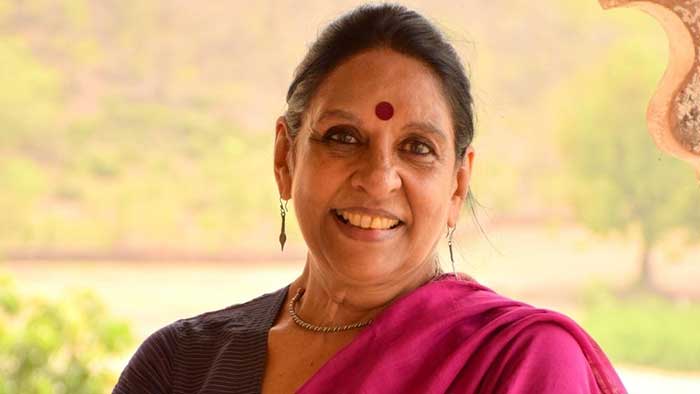
Defence deal corruption: 4-yr jail term for ex-Samata Party head Jaya Jaitley, 2 others
A Delhi court on Thursday gave a 4-year jail term to ex-Samata Party president Jaya Jaitley and two others for corruption in a 2000-01 case related to a purported defence deal.

A Delhi court on Thursday (July 30) gave a 4-year jail term to ex-Samata Party president Jaya Jaitley and two others for corruption in a 2000-01 case related to a purported defence deal saying they compromised the entire defence system of the country.
Special CBI judge Virender Bhat also awarded 4-year jail term to Jaitley’s former party colleague Gopal Pacherwal and Major General (retired) S P Murgai in the case, Murgai’s advocate Vikram Panwar said.
“There should be zero tolerance towards corruption in defence procurement deals as these have direct bearing upon an independence and sovereignty of our country,” the court said, adding that the crime committed by the convicts was of highest degree.
The court, in an in-camera proceeding, imposed a fine of ₹1 lakh each on all three convicts and directed them to surrender before it till 5 PM on Thursday.
The order was stayed by the Delhi High Court later in the day.
The three accused were held guilty of corruption and criminal conspiracy in the purported purchase of hand-held thermal imagers. The case stemmed from ‘Operation Westend’ sting aired by news portal Tehelka in January 2001.
The trial court said the convicts were no laymen but persons of status and means, and had not committed the crime due to any ignorance or lack of knowledge or under any duress.
On the contrary, the crime was committed by them in pursuance to a well hatched conspiracy and upon due deliberations with each other, the court said, terming the crime as a very serious and having grave ramifications so far as the defence of our country is concerned.
The convicts took money from the representative of a fictitious firm without bothering to ascertain whether the firm was actually in operation and whether the product of the said firm sought to be inducted in the Indian Army was worth it, the court observed.
It noted that they chose to remain blindfolded on all the vital aspects of the concerned product of the fictitious firm only with a view to get some monetary enrichment.
“By their act, they compromised the entire defence system of the country. It is a crime with very wide and huge repercussion for the entire nation and thus cannot be dealt with leniently.
“For their petty gains, the convicts sought to assist the induction of a product of an unknown fictitious company into the Indian Army, which if done, would have made the Army immensely vulnerable and handicapped in the wake of an enemy attack. The very existence of our country would have come under threat,” the court said, adding that it was no less than an attack on the independence of our country.
“The convicts do not deserve any mercy, they deserve harshest sentence,” the court said, adding that any kind of mercy would be mockery of justice and sure to excite the fury of the society at large.
The virus of corruption which has engulfed the entire fabric of our society, is becoming a major obstacle in the growth and development of our nation.
In a democratic system, when the public offices and public institutions are misused for private advantage, they loose their legitimacy, it said.
The court said the corruption not only corrodes the social fabric of the society but also depletes the national wealth and undermines peoples trust in the political system, in its institutions and in the public servants.
The court held that all the three accused, along with Surender Kumar Surekha (who later turned approver), were party to the criminal conspiracy that took place around December 2000 and January 2001 at Delhi.
The court observed that while Jaitley accepted illegal gratification of ₹2 lakh from Mathew Samuel, a representative of fictional company Westend International, Murgai received ₹20,000.
All the three accused – Jaitley, Pacherwal and Murgai – were convicted of the offence of conspiracy under Section 120-B IPC read with Section 9 (Taking gratification, for exercise of personal influence with public servant) of Prevention of Corruption (PC) Act.
The court held that it is “proved beyond doubt that in the meeting in the hotel room on December 25, 2000 Surekha and Murgai assured their assistance to Samuel in procuring letter of evaluation for the product of his company from the Ministry of Defence and also to arrange a meeting between him and accused Jaya Jaitley who would provide political cover to them in this regard”.
Accordingly, Pacherwal arranged the said meeting for December 28, 2000. He too was present in the said meeting in the room of Jaitley along with Surekha, Samuel and Murgai, the court observed.
The court said, “In that meeting, which took place in the official residence of the then Union Minister for Defence, George Fernandes, Samuel was introduced to Jaitly as a businessman whose company intends to enter the market of defence procurement.
“Samuel offered the sum of ₹2 lakh to Jaitley who instructed him to handover the money to Pacherwal and accordingly, the money was received by accused Pacherwal knowing that it was bribe money.
“In lieu thereof, Jaitley assured Samuel that in case the product of his company is not considered, she would intervene by making a request to Sahib (purportedly the Defence Minister Mr. George Fernandes) to send a word to the concerned officer in this regard.”

